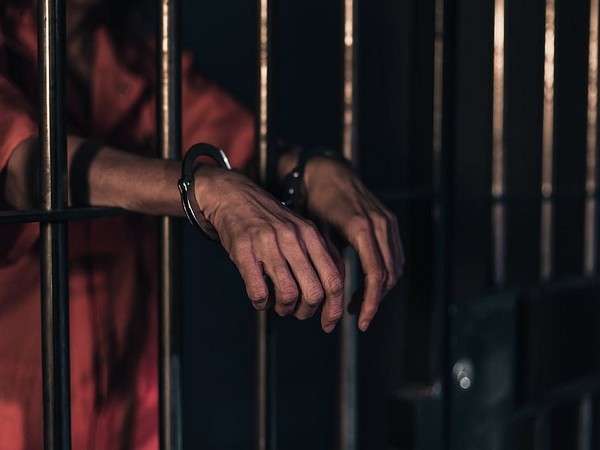World News Roundup: Yemen's warring parties agree largest prisoner swap; Belarusian police detain at least 10 people and more
A Newshub-Reid Research Poll released on Sunday showed support for Ardern's Labour Party at to 50.1%, though this is down from the record 60.9% recorded earlier this year when New Zealand was widely lauded as a world leader in battling COVID-19.

Following is a summary of current world news briefs.
Greece calls on Turkey to condemn flag incident on Greek island
Greece on Sunday called on Turkey to condemn and investigate what it said was an "insult" to its national flag on the Greek island of Kastellorizo. Greek media have reported that the blue and white Greek flag painted on a rocky hillside on Saturday appeared stained with red paint. Kastellorizo is very close to the Turkish coast.
Yemen's warring parties agree largest prisoner swap
Yemen's warring parties have agreed to exchange around 1,000 prisoners, including 15 Saudis, as part of trust-building steps aimed at reviving a stalled peace process, the United Nations and sources said on Sunday. The Yemeni government, backed by a Saudi-led military coalition, and the Houthi movement they have been battling for over five years, in late 2018 signed a deal to swap some 15,000 detainees split between both sides but the pact has been slowly and only partially implemented.
Belarusian police detain at least 10 people at opposition rally: Ifx
Belarusian police detained at least 10 people at the start of an opposition rally in the capital Minsk on Sunday, Interfax news agency reported. The opposition is contesting official results of Belarus's Aug. 9 presidential election which declared incumbent President Alexander Lukashenko the outright winner.
In Brazil's Amazon a COVID-19 resurgence dashes herd immunity hopes
The largest city in Brazil's Amazon has closed bars and river beaches to contain a fresh surge of coronavirus cases, a trend that may dash theories that Manaus was one of the world's first places to reach collective, or herd, immunity. When a large portion of a community becomes immune to a disease, its spread becomes unlikely.
NZ prime minister on course for election victory: poll
New Zealand Prime Minister Jacinda Ardern is poised to retain power at next month's election, a widely watched poll showed on Sunday, although it said a recent COVID-19 outbreak has dented her support slightly. A Newshub-Reid Research Poll released on Sunday showed support for Ardern's Labour Party at to 50.1%, though this is down from the record 60.9% recorded earlier this year when New Zealand was widely lauded as a world leader in battling COVID-19.
North Korea warns of naval tensions during search for slain South Korean
North Korea said on Sunday it is searching for the body a South Korean official killed by its troops, but warned that South Korean naval operations in the area threatened to raise tensions by intruding across a disputed sea border. North Korean leader Kim Jong Un issued a rare apology on Friday for the fatal shooting of the South Korean fisheries official in North Korean waters, according to Seoul.
Swiss voters reject curbs on EU immigration: TV projection
Swiss voters have overwhelmingly rejected a right-wing party's attempt to scrap a pact allowing the free movement of people from the European Union, according to a projection of results by broadcaster SRF on Sunday. The Swiss People's Party (SVP) had called a referendum on the EU agreement - a vote that was seen as an important test of attitudes towards foreigners who make up a quarter of the population.
'Multiple dangers': Lebanese patriarch warns of crisis without a government
Lebanon's top Christian cleric said on Sunday the nation faced "multiple dangers" that would be hard to weather without a government, speaking a day after the prime minister-designate quit following his failed bid to form a cabinet. Mustapha Adib stepped down on Saturday after hitting a roadblock over how to make appointments in the sectarian system, striking a blow to a French initiative that aimed to haul the nation out of its deepest crisis since its 1975-1990 civil war.
'Taiwan is Taiwan': China name dispute moves from birds to climate change
The dispute over international organisations referring to Taiwan as Chinese has moved from wild bird conservation to climate change, after a global alliance of mayors began listing Taiwanese cities as belonging to China on its website. China has ramped up pressure on international groups and companies, no matter how small or obscure, to refer to democratic Taiwan as being part of China, to the anger of Taiwan's government and many of its people.
Clashes between Armenia and Azerbaijan threaten South Caucasus stability
Clashes erupted between Armenia and Azerbaijan on Sunday over the volatile Nagorno-Karabakh region, reigniting concern about instability in the South Caucasus, a corridor for pipelines transporting oil and gas to world markets. Both sides, which fought a war in the 1990s, reported fatalities. Armenia and Nagorno-Karabakh, a breakaway region that is inside Azerbaijan but is run by ethnic Armenians, declared martial law and mobilised their male populations.
(With inputs from agencies.)










